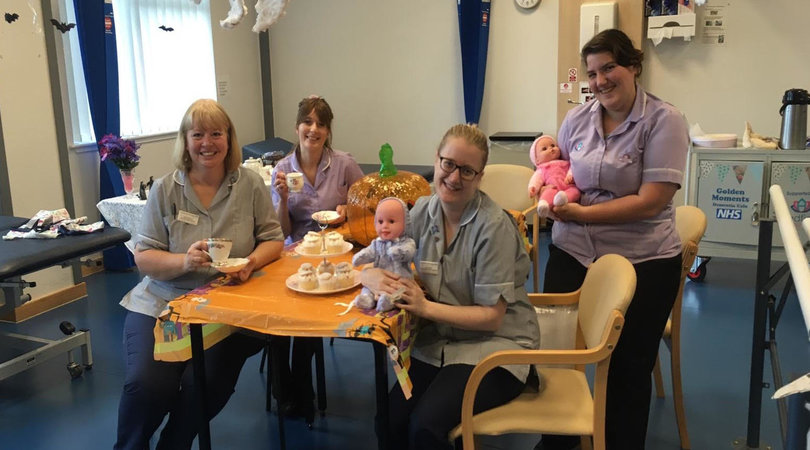
National Office
Please enter the office location/term above to receive results for your closest office as well as information matches
The use of dolls can bring great benefits to some people with a diagnosis of dementia, particularly those in later stages. It involves making a doll available to the person to hold or to sit with.
Some people with dementia get enjoyment from holding or simply being with a doll. It might remind them of a time when they had young children of their own or simply create pleasant feelings of reminiscence or affection. Some family members find that giving the person they care for a doll seems to inspire a renewed sense of purpose, which can lead to increased activity levels and liveliness.
Having a doll to interact with can improve a person’s communication.
Radfield Home Care works closely with Karen Breese, Dementia Specialist Nurse and her team at the Royal Shrewsbury Hospital and regularly supports the Dementia cafe ‘Golden Moments’. The Radfield care team have been heavily involved in the introduction of the dementia dolls into the cafe to the patients, outpatients and visitors, which have been well received.
Karen explained,
“The image of an older person cuddling and singing to a child’s doll can seem strange and incongruous. However, we have found some people living with dementia enjoy cuddling the dolls and it stops them being distressed and agitated.”
Dolls can help to reduce withdrawal and help overcome communication difficulties between the carer and the patient. There are various theories as to why doll therapy works. Some believe it brings back happy memories of parenthood and of being useful and needed. Doll therapy is very much a nurturing therapy, as it gives people living with dementia a sense of meaning and purpose. Interestingly, doll therapy also seems to work with people who have not had children, as people who haven’t had children find it comforting as well.”
Sonya Cole, care manager for the Radfield Home Care Shrewsbury branch commented,
“We are so grateful to Sandra from ‘Forever Dolls’ for making and donating these dolls for our clients and the dementia cafe. They are wonderful dolls, extremely lifelike and provide many benefits to our clients living with dementia and the dementia cafe visitors. We have recently introduced ‘Mary’ a forever doll to one of our wonderful clients who lives with Dementia and she couldn’t wait to get out of bed and get ready to look after little ‘Mary’. Our client didn’t stop chatting to her and asked if she could keep ‘Mary’ overnight.
The following day our client’s daughter kindly gave us some feedback, “Mum was equally engaged with ‘Mary’ during the evening. She has always loved babies, and I think this has been a positive introduction into the household. Being with ‘Mary’ tired mum out in a good way, as she quite willing to go to bed last night and slept through the night, the first time in a long time!” We were delighted to receive such positive feedback.”
Find out more about dementia doll therapy and what it can do to improve the lives of patients.
Get in touch with your local Radfield Home Care office today and find out more about the support we offer and the difference we can make.